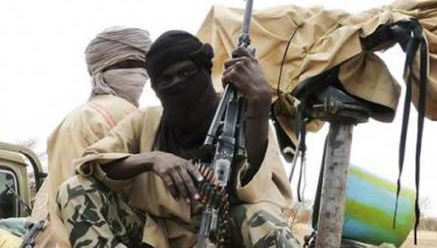
Boko Haram and the Islamic State West Africa Province (ISWAP) were responsible for 66% of all violent deaths in Nigeria in 2024, according to a new report by the Africa Center for Strategic Studies (ACSS).
The report revealed that militant Islamist violence in the Lake Chad Basin, primarily driven by Boko Haram and ISWAP, resulted in 3,627 fatalities, making the region the third deadliest for militant violence in Africa, after the Sahel and Somalia.
Northeast Nigeria: The Epicenter of Violence
Despite a 4% decline in fatalities compared to 2023, Nigeria’s Northeast remained the epicentre of violence linked to Islamist militants. The ACSS report noted that Boko Haram and ISWAP, though often in conflict with each other, have expanded their operations into northern Cameroon, leading to a 51% increase** in violent incidents there.
For the first time, Cameroon recorded more militant Islamist-linked violent events than Nigeria, with 711 incidents, compared to Nigeria’s 592.
Security experts warn that Boko Haram and ISWAP’s growing cross-border operations pose a serious regional threat, undermining military efforts by both Nigerian and Cameroonian forces. Despite sustained military campaigns, these groups have adapted their tactics, making it difficult for security agencies to contain the violence.
READ ALSO:Security forces repel Boko Haram attack on Borno police station
Beyond the Lake Chad Basin, the report highlighted that the Sahel region remained Africa’s most violent area for the fourth consecutive year, accounting for 55% of all militant Islamist-related fatalities on the continent, with an estimated 10,400 deaths in 2024.
This violence was largely driven by terror attacks from the Islamic State group in the Sahel (IS Sahel) and the al-Qaida-affiliated Jama’at Nusrat al-Islam wal-Muslimin (JNIM).
Burkina Faso was the worst affected, accounting for 61% of all militant Islamist-related deaths in the Sahel. In September, JNIM carried out one of the deadliest attacks of the year, massacring up to 400 people in the Burkinabe town of Barsalogho.
While the Sahel and Lake Chad Basin saw continued violence, Somalia recorded a 41% decrease in militant Islamist-related fatalities in 2024, with 4,482 deaths reported. This decline was attributed to reduced al-Shabaab activity, despite isolated attacks such as the Mogadishu beach assault that killed 32 people.
“Targeting and blasting to kill 32 members from the civilian population means these Kharijites are not going to target only government centres, soldiers, and officials,” Somali police spokesperson Abdifatah Adan Hassan was quoted as saying by Le Monde. Somali officials use the term Kharijites to describe al-Shabaab militants.
Despite regional differences in militant violence, security analysts warn that Boko Haram and ISWAP’s sustained operations in Nigeria and neighbouring countries remain a grave concern. Their ability to adapt and expand their reach poses significant challenges to national and regional security efforts.






